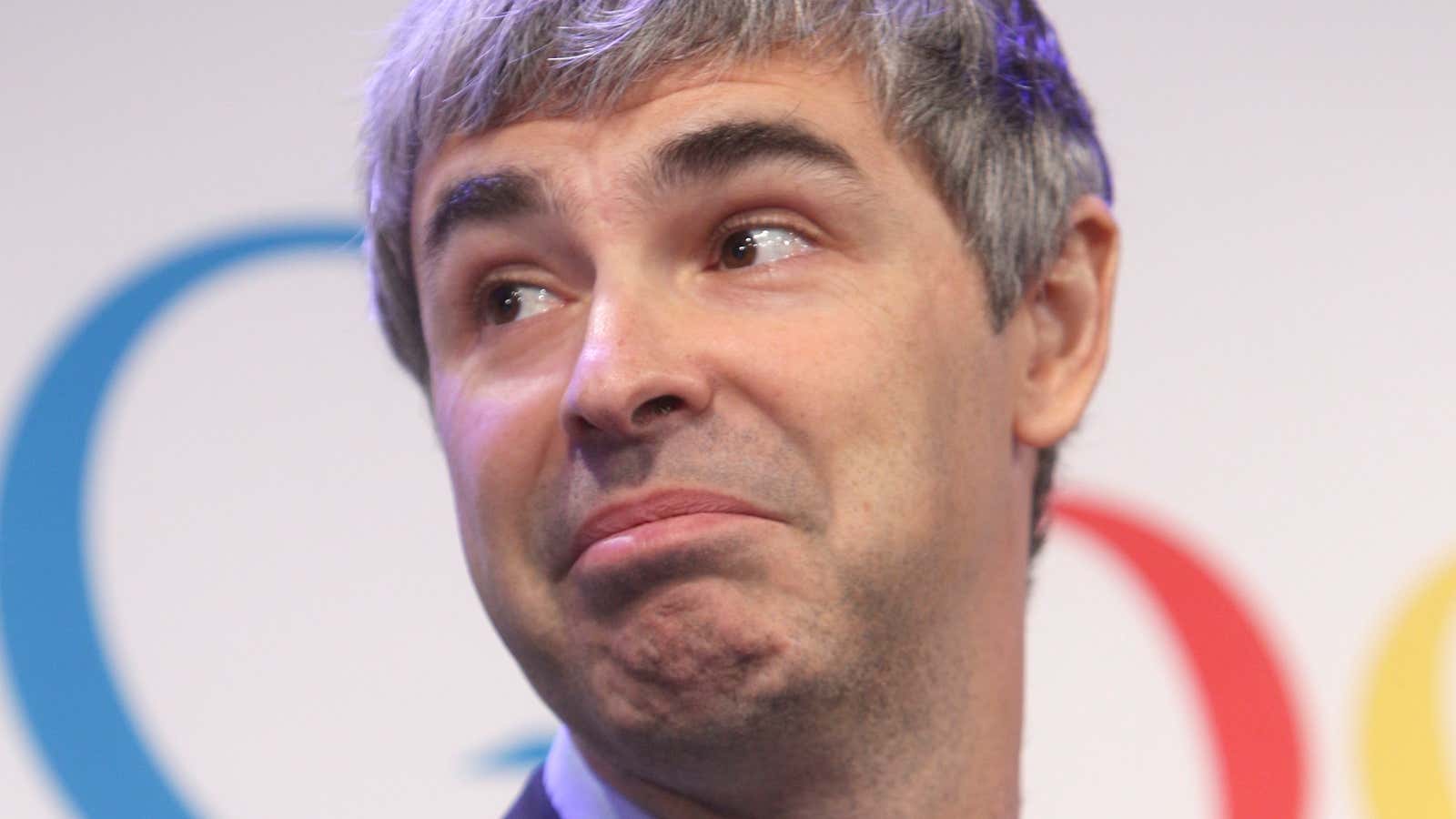Google’s fourth-quarter sales and earnings report yesterday fell short of expectations, and shares initially dipped in after-hours trading. Given the pessimism around Google’s long-term search advertising prospects, a “miss” certainly wasn’t what anyone wanted.
But more sober investors rallied around the stock today, sending shares up 5%. Why the change of heart? Google’s most important business—its owned-and-operated “Google Sites” advertising business—actually performed pretty well.
Here are a few highlights from today’s Wall Street research reports.
- RBC analyst Mark Mahaney calls the quarter a “high quality miss.” Citing 18% year-over-year organic growth in Google’s core business, he notes it’s “very consistent and very rare” for a company that’s on a $72 billion annual run rate. (Still, he reduced 2015 and 2016 estimates for Google, “almost entirely driven” by foreign currency issues.)
- Similarly, Bernstein analyst Carlos Kirjner, a long-time Google optimist, writes today: “The evolution of search advertising revenues, reported within Google Sites, is by far the most important question for Google investors.” He adds, “it is extremely hard to argue that search is decelerating rapidly, strengthening our belief that Google is deeply undervalued.”
- Lastly, Ben Schachter, an analyst with Macquarie Research, writes: “The partner network was weaker than expected, but [Google] is clearly deliberately removing lower-quality partners, and this should help profitability over time.” He adds: ”Notably, [management] highlighted strength in mobile search multiple times on the call,” Schachter writes. “Basically, the core was not as bad as we feared.”
One particularly weak-looking spot was Google’s “other” revenue line, which includes its hardware business and Google Play app store. As Mahaney highlights, Google attributed this slowdown to “a combination of [currency] headwinds, especially in Japan, which is a large Google Play market, and hardware inventory shortages of the Nexus 6 ‘phablet’.” Those are one-time problems that can be easily absorbed.
That’s not to say there aren’t real concerns for Google. One is whether its increasing research and development spend—often on new and strange projects—will be worth it. (Kirjner notes to watch the “other” line carefully for progress.)
More important, for now, is the future of the search and search advertising markets. But this quarter’s report, at least, shouldn’t actually cause any alarm there.




